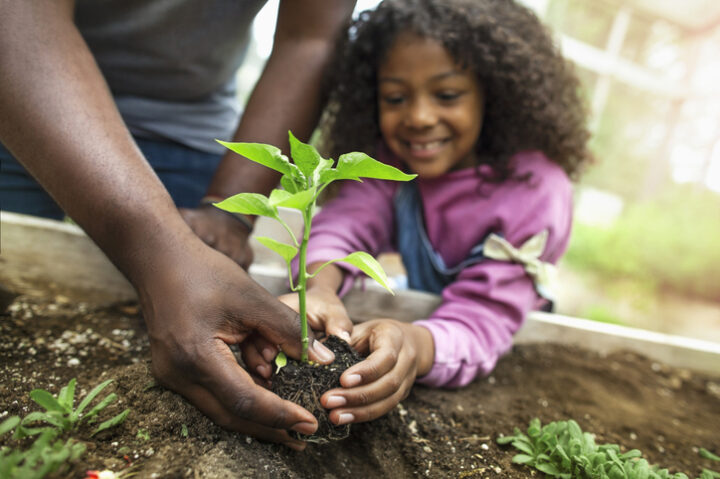How to productively reframe eco-anxiety as a science communicator or educator

- Science communicators and educators have an obligation to prioritize the well-being of children and youth, which includes supporting learning that addresses the consequential climate concerns that threaten their current lives and futures. They need to learn to manage political complexities of that work.
- Organizational leadership and staff should invest in professional learning and updated science learning materials that are informed by Indigenous scientists and other environmental and climate justice leaders.
What Is The Issue?
Most eco-anxiety stems from the fear of change— change of social structures, loss of preferred futures, or systems and lifestyles that maintain a hierarchical and capitalistic society. Attending to eco-anxiety means collectively reimagining new ways to live in harmony with Earth and one another, which requires the expertise of Black, Indigenous, Latinx, Asian and Pacific Islander communities, as many have creatively adapted to historically disproportionate socio-ecological change and climate change impacts. Centering the communities that are the most impacted by climate change is key to helping all children and youth imagine and build healthy futures.
Authors:
BY ANASTASIA SANCHEZ, KALEB GERMINARO & CHRISTINA GUEVARA; EDITED BY PHILIP BELL | OCTOBER 2021
Reflection Questions
- Work through your own anxieties about climate science. What are you fearful of? How can your fears help identify possible opportunities for healing self, others, and nature?
- How can you disrupt conversations that are anxiety-inducing with learning about multispecies interdependence and collective thriving?
- How can science communication and instruction prioritize generational competence, caring, and the consequential concerns and thriving futures of the communities most impacted by climate change?
Things To Consider
- People broadly, and young people specifically, benefit from a strong connection to nature. Connections to nature support the holistic health of people. The Nature and Health network provides opportunities for continuing education on these topics.
- An essential starting place to attend to eco-anxiety is to shift science narratives from Westernized ways of separating humans from ecosystems to humans as part of and in relation with ecosystems. Focus learning on solutions based on stewardship and multispecies well-being. This shift emphasizes how human communities can flourish in just relationships with land and non-human relatives.
- The unfolding climate crisis can feel ominous, but remaining mired in fear limits the agency of both learners and educators—preventing them from engaging in innovative thinking and action toward ecological caring and justice. Science is uniquely positioned to cultivate critical hope through solution-based instruction that considers causes of, impacts of, and responses to climate change.
- Many community organizations, scholars, and young people are already working to address mental health and well-being. Some are exploring transformative agency through farming, in both rural and urban settings, while others are working towards advocating for disaster relief and policy change. The movie Kiss The Ground illustrates the possibilities of regenerative practices that heal the soil, revive ecosystems, increase farmer well-being, and help balance the climate. The Gather documentary shows how food sovereignty is being used to support the rebuilding of Indigenous communities.
Attending to Equity
- Part of the colonization of peoples and science curriculum involves the erasure of BIPOC cultural knowledge of living in harmony with nature. Attending to cultural resurgence means providing a counter-narrative to normative science, one informed by Traditional Ecological Knowledge (TEK) that provides a social critique of the Westernized extractive practices that have damaged, and continue to damage, ecosystems and communities.
- Anyone can experience eco-anxiety, but for many BIPOC communities, feelings and expressions of anxiety, fear, grief, and anger related to climate change are rooted in centuries of painful history and current socio-ecological violence. Practice critical consciousness about how communities experience eco-anxiety.
Recommended Actions You Can Take
- Support young people to recognize their connection to nature as healthy and necessary for collective well-being. Cultivate personal, cultural, and intersectional connections to nature to prioritize building towards just and thriving futures rather than despairing over climate projections. Land-based pedagogies and curriculum have been shown to have a positive impact on mental health and promote thriving socio-ecological relationships.
- Do not focus on naively romantic notions of hope or consumer-based approaches to climate change response, which are not inclusive of all economic backgrounds and reinforce consumption behaviors. Instead, consider ways to transform fear into action through environmental stewardship of local and global ecosystems, BIPOC-led grassroots endeavors, and green innovations from youth around the world as frameworks for activism that mitigates environmental impacts while nurturing radical hope and ecological caring.
ALSO SEE STEM TEACHING TOOLS
STEM Teaching Tools content copyright 2014-22 UW Institute for Science + Math Education. All rights reserved.
This site is primarily funded by the National Science Foundation (NSF) through Award #1920249 (previously through Awards #1238253 and #1854059). Opinions expressed are not those of any funding agency.
Work is licensed under a Creative Commons Attribution-ShareAlike 4.0 Unported License. Others may adapt with attribution. Funded by the National Science Foundation (NSF). Opinions expressed are not those of any funding agency.


 Email Feedback
Email Feedback

